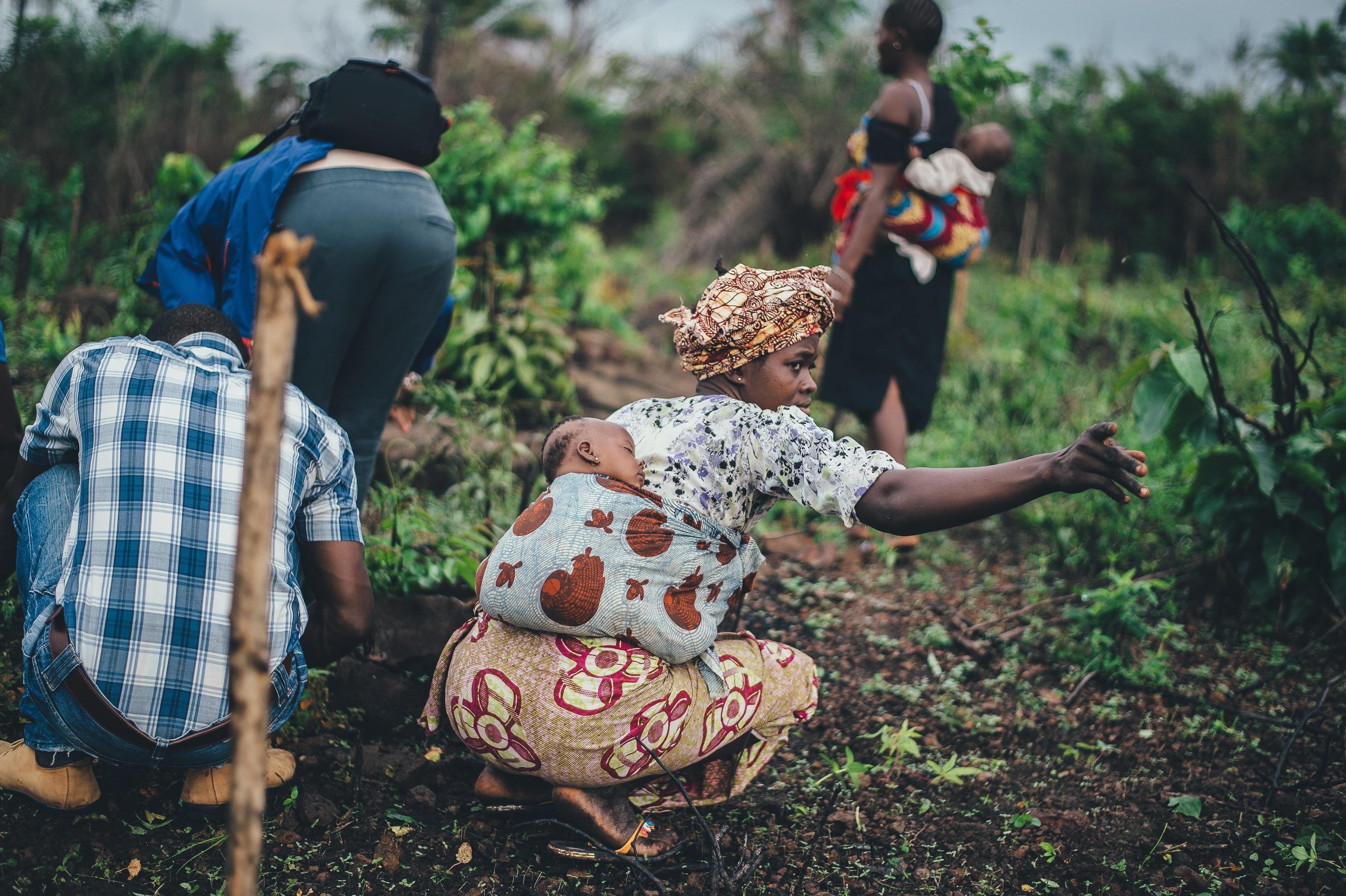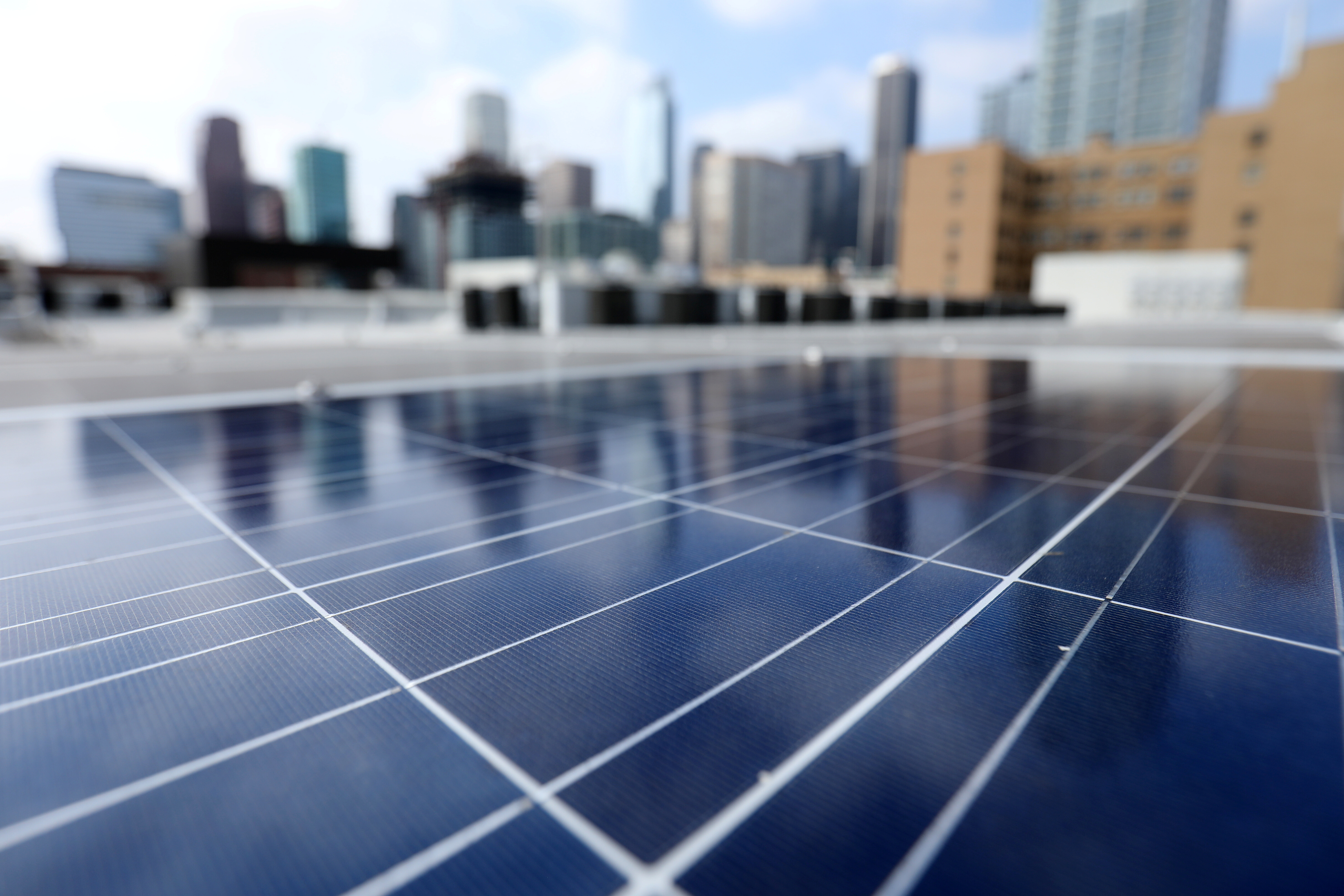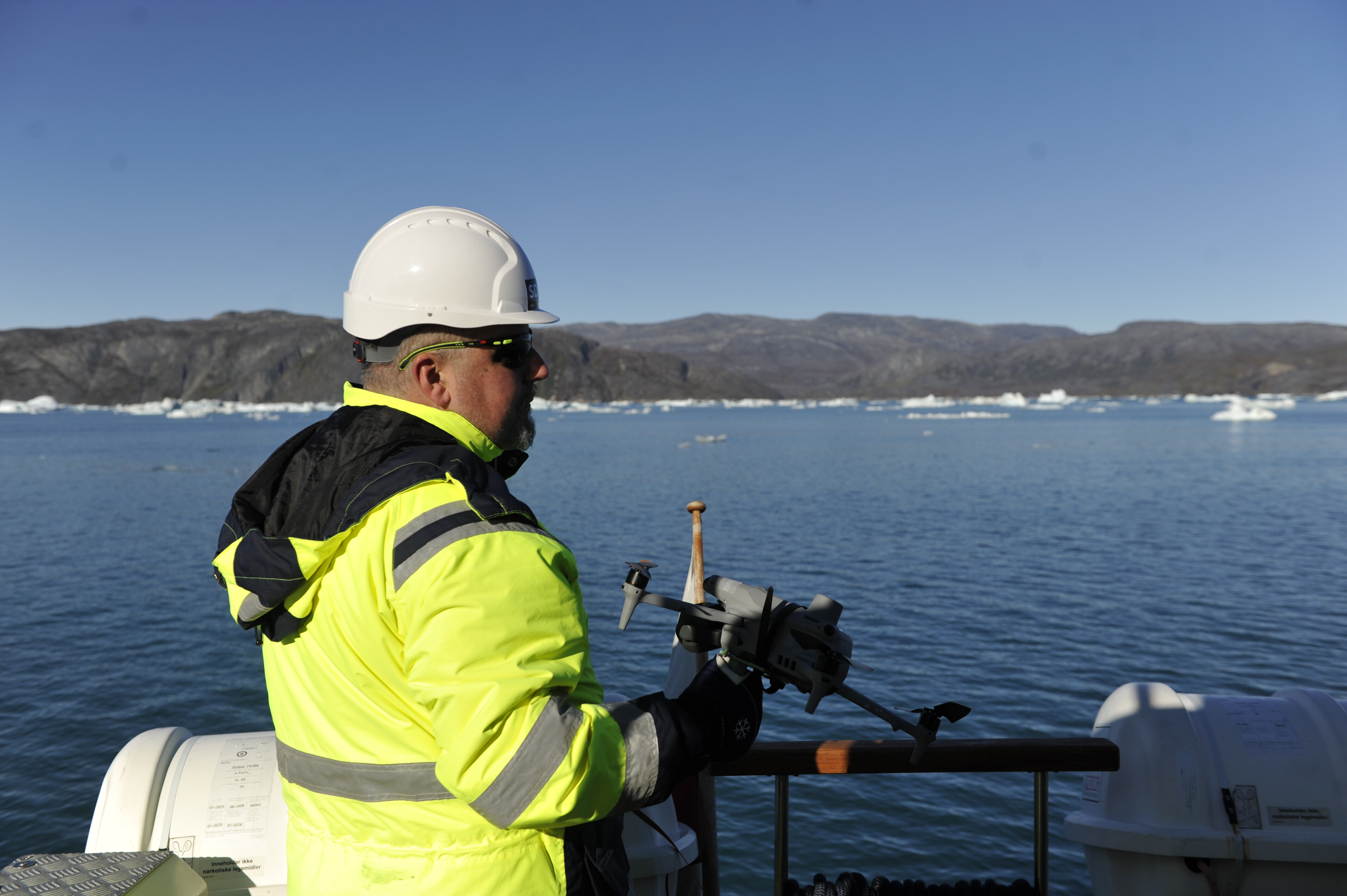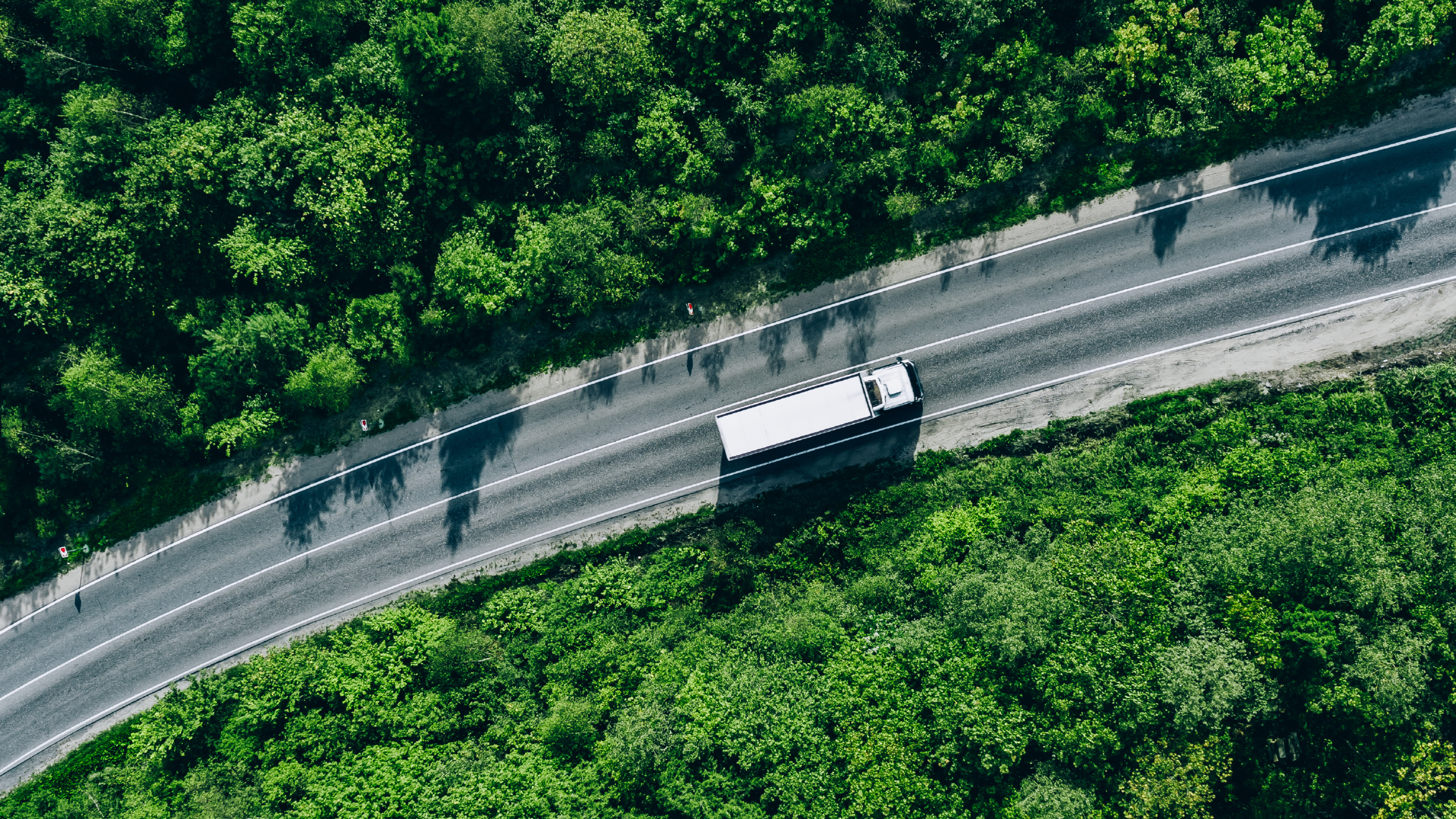Why we must build climate resilience with women in Africa

Rural women in Africa play significant roles in subsistence agriculture and so their participation in needed in building climate resilience Image: Unsplash / @anniespratt
Listen to the article
- Women and girls are often disproportionately affected by climate-related disasters, particularly in Africa where many play significant roles in subsistence agriculture.
- Many governments also fail to recognise the important role women can and should play in disaster response strategies.
- Gender equity must be factored into disaster planning and preparedness to ensure women and girls are no longer disproportionately affected by the impact of the climate crisis on African countries.
Floods, storms, droughts and mudslides are indiscriminate in their destruction, but their effects are not. In Africa, where women and girls have low socio-economic status, they are disproportionately affected by natural disasters: mortality rates are higher, recovery rates are slower. Rural women also play a significant role in subsistence agriculture and so are devastated by changes in climate and climate-related extreme events.
Risk and disaster strategies and responses are usually just as indiscriminate in their rescue and rebuilding programmes. They tend to look at affected populations as a whole, without taking gender into account, and with no differentiation between rural and urban populations.
African women and climate resilience
Throughout Africa, women and girls represent half a billion of the rural poor, with little to no access to land ownership, financial credit, technology and infrastructure. Despite these challenges, they play an outsize role in food production, bio-diversity preservation, agricultural innovation and as keepers of traditional knowledge systems.
It is crucial, therefore, that African governments and NGOs develop and adopt early-warning policies and funding mechanisms that acknowledge the uneven impacts of natural disasters on women.
“Gender is a flagship issue for disaster risk management,” says Ange Chitate, the Chief Operating Officer of African Risk Capacity (ARC) Limited, which helps African governments improve planning, preparation and responses to natural disasters triggered by extreme weather events. “Gender equality is crucial, as women are most vulnerable, yet most responsible, when disaster strikes.”
ARC’s director, Delphine Traoré, adds: “Anything climate-related has a lot to do with food security and the most vulnerable across Africa. Its people – particularly women and girls - bear the brunt of climate change, yet actually have very little impact on carbon emissions.”
The disproportionate impact of disaster on women
Women and girls undoubtedly occupy the lowest economic strata across Africa. According to research on gender equality from the African Development Bank, women in Africa are more likely to be self-employed in the informal sector, which means they are unlikely to be earning a regular wage. Those women that do earn a regular wage through formal employment hold 4 of every 10 jobs but earn, on average, two-thirds the salary of their male colleagues.
Young African women are also more likely to be unemployed than young African men. Further, women in Africa carry out more than three times the amount of care work that men do, according to the International Labour Organisation, while three quarters of paid jobs for women in Africa comprise unskilled or semi-skilled labour.
Given this level of inequality, it is unsurprising that when disaster strikes, women face disproportionate dangers. As caregivers to their families they may find it more difficult to evacuate their homes. Clothing they wear for modesty might hamper their ability to run away from danger or clamber out of collapsed buildings. Female children might be culturally ill-equipped with survival techniques such as climbing trees or swimming to escape floods. Poorly-educated women might not be able to read written warnings or instructions. The low social status of women means that they might be overlooked in rescue attempts in favour of male counterparts.
After a natural disaster, the burden of responsibility also typically falls disproportionately on female shoulders. Women are often expected to care for the sick and injured while maintaining daily chores. During food-supply shortages, women and girls may be expected to eat last, leading to malnutrition at best and starvation at worst. Also, when refugees are housed in temporary shelters, women can face increased risk of gender-based violence, sexual assault and human trafficking.
During the recovery period, or during prolonged disasters, women are often still expected to maintain chores and caregiving roles. If a breadwinner has been lost, many women are forced to seek employment while still performing these daily tasks. Girls can be pulled from school to take care of household duties.
In the aftermath of disaster, reporting or support systems for women such as health clinics and shelters (usually inadequate at the best of times) can break down completely. Pregnant and nursing mothers are therefore particularly vulnerable both during and after any natural shock or prolonged disaster, along with infant children.
Women’s role in climate resilience: disaster preparedness, response and recovery
Ironically, women are typically extremely active in disaster preparedness, response and recovery, albeit haphazardly and informally. They are often involved in erecting temporary shelters, organising soup kitchens and managing healthcare. As homemakers and caregivers, they can be knowledgeable and experienced in dealing with crises. These efforts can be sidelined when the formal response arrives or the structured recovery begins, however.
Governments, planners and strategists must adopt planning measures that acknowledge and formalise the participation of women in disaster management and risk strategies. They must promote data-gathering aimed at specific age and gender disaggregation to understand what works and what doesn’t. Strategies should include women from all demographic backgrounds, to identify risks that male planners might not understand. Consulting with women also helps break down stereotypes and discrimination.
“Change starts with building resilience. Risk insurance plays a significant role in that, particularly in climate change.”
”The need for support to tackle climate-related crises
Being proactive is a crucial aspect to disaster management, says Emily Jones, Climate and Risk Financing Advisor for the UN World Food Programme (WFP). “It’s quite hard to convince authorities to be more proactive when designing strategies for preventing human suffering and hardship when events like drought occur,” she says. “Change starts with building resilience. Risk insurance plays a significant role in that, particularly in climate change.”
Indeed, ARC’s Traoré believes G7 countries have a duty to support Africa by, for example, providing parametric insurance premium finance to enable more decisive and speedy responses to crises fuelled by climate change such as drought, disease, floods, fires and storms.
What is the World Economic Forum on Africa?
“African countries in particular are affected by increasingly frequent droughts,” continues Veronika Bertram, Portfolio Manager, disaster risk finance & insurance at KfW Development Bank. Drawing on her own experience of disaster risk management, she says: “In emergency situations, it takes seven to nine months on average for emergency aid to reach the people who need it most. During this period, a drought can turn into a human tragedy.”
We must show African governments the importance of having insurance and accounting for food security and disaster risk in their budgets. We need to do more to find sustainable ways to provide premium financing for countries and people – particularly women and girls – that continue to be significantly impacted by climate change.
Don't miss any update on this topic
Create a free account and access your personalized content collection with our latest publications and analyses.
License and Republishing
World Economic Forum articles may be republished in accordance with the Creative Commons Attribution-NonCommercial-NoDerivatives 4.0 International Public License, and in accordance with our Terms of Use.
The views expressed in this article are those of the author alone and not the World Economic Forum.
Stay up to date:
Education, Gender and Work
Related topics:
Forum Stories newsletter
Bringing you weekly curated insights and analysis on the global issues that matter.
More on Climate Action and Waste Reduction See all
Noelia Garcia Nebra
November 18, 2025







